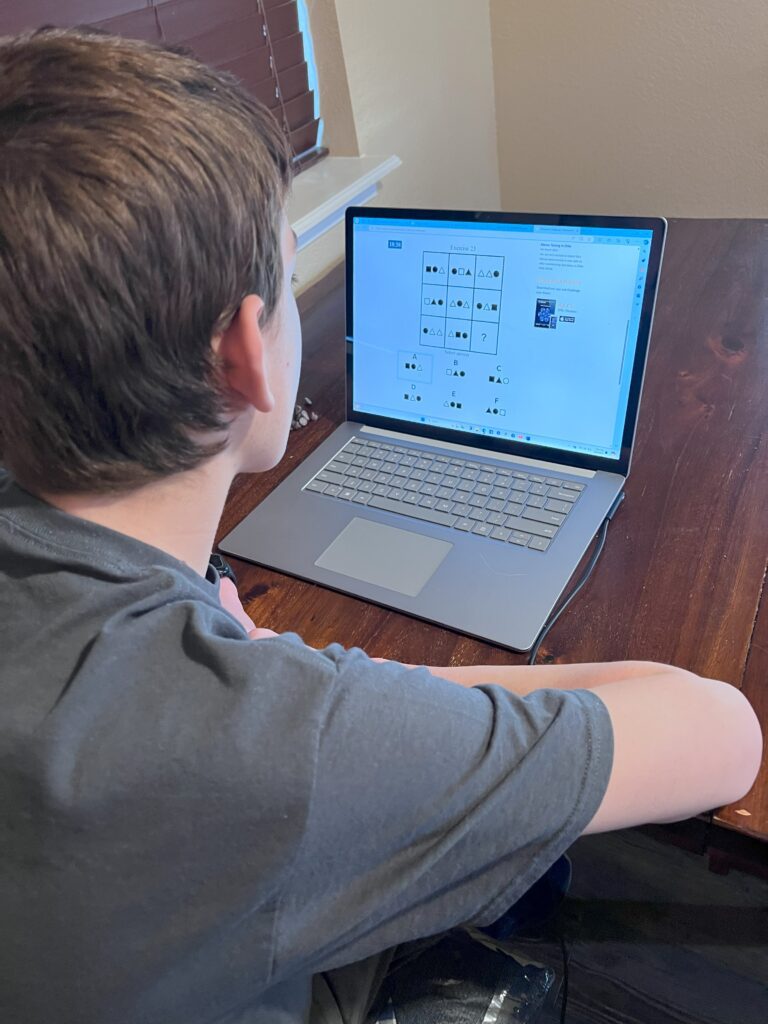Should I Teach My Homeschool Kids How to Code?

In today’s rapidly advancing technological world, the importance of digital literacy cannot be overstated. As parents, we are faced with the question of how best to prepare our children for a future that is likely to be even more reliant on technology. Teaching kids how to code has become a popular option, sparking a debate among parents and educators. In this blog, we will explore the benefits of introducing coding to children and help you decide whether it’s a skill worth nurturing in your kids.
Fostering Problem-Solving Skills
Coding is fundamentally about breaking down complex problems into smaller, more manageable steps. By learning how to code, children develop valuable problem-solving skills. In addition, they also develop analytical thinking, and the ability to approach challenges with a structured mindset. These skills extend beyond the realm of programming and can be applied to various aspects of their lives, including academics and personal relationships.
Enhancing Creativity and Innovation
Coding is a creative process that encourages children to think outside the box and come up with innovative solutions. As kids gain the ability to create their own games, apps, or websites, they become more self-reliant and gain a sense of accomplishment. In this way, it fosters creativity and encourages them to explore through technology. Moreover, this may inspire a lifelong interest in computer science or related fields.
Improving Computational Thinking
Computational thinking involves understanding how computers interpret and execute instructions. Learning to code helps kids develop this skill, enabling them to approach challenges methodically and logically. In addition, computational thinking encompasses algorithmic reasoning, pattern recognition, and abstraction. All of these skills are vital for tackling complex problems in any field.
Preparing for the Digital Age
We are living in an era where technology permeates almost every aspect of our lives. Knowing how to code gives children a head start in understanding the digital world they inhabit. Whether it’s for professional pursuits or everyday life, having a foundational understanding of coding equips them with the tools to navigate the digital landscape confidently.
Empowering Future Career Opportunities
The job market is constantly evolving, and technology-related skills are in high demand. Teaching your kids how to code can open doors to a wide array of career paths, from software development and data science to digital marketing and artificial intelligence. Even if they don’t pursue a technical career, coding knowledge can give them a competitive edge in many other fields.
Fostering Collaborative Learning
Coding is not solely an individual pursuit. Many coding projects involve teamwork and collaboration. Introducing your kids to coding can encourage them to work together, share ideas, and learn from their peers. This collaborative learning environment nurtures important social skills and the ability to communicate effectively in group settings.
Conclusion
While it’s clear that teaching kids how to code offers numerous benefits, it’s essential to consider their interests and inclinations. Coding should be introduced as an exciting opportunity for exploration rather than a mandatory skill. By presenting it in a fun and engaging manner, children can discover the joy of coding on their own terms.
As parents, we should encourage our kids to explore various interests, and coding can undoubtedly be a valuable addition to their skill set. Ultimately, whether or not to teach your children how to code depends on their individual preferences, but providing them with the option to learn this vital skill can empower them for a future that will undoubtedly be shaped by technology.
